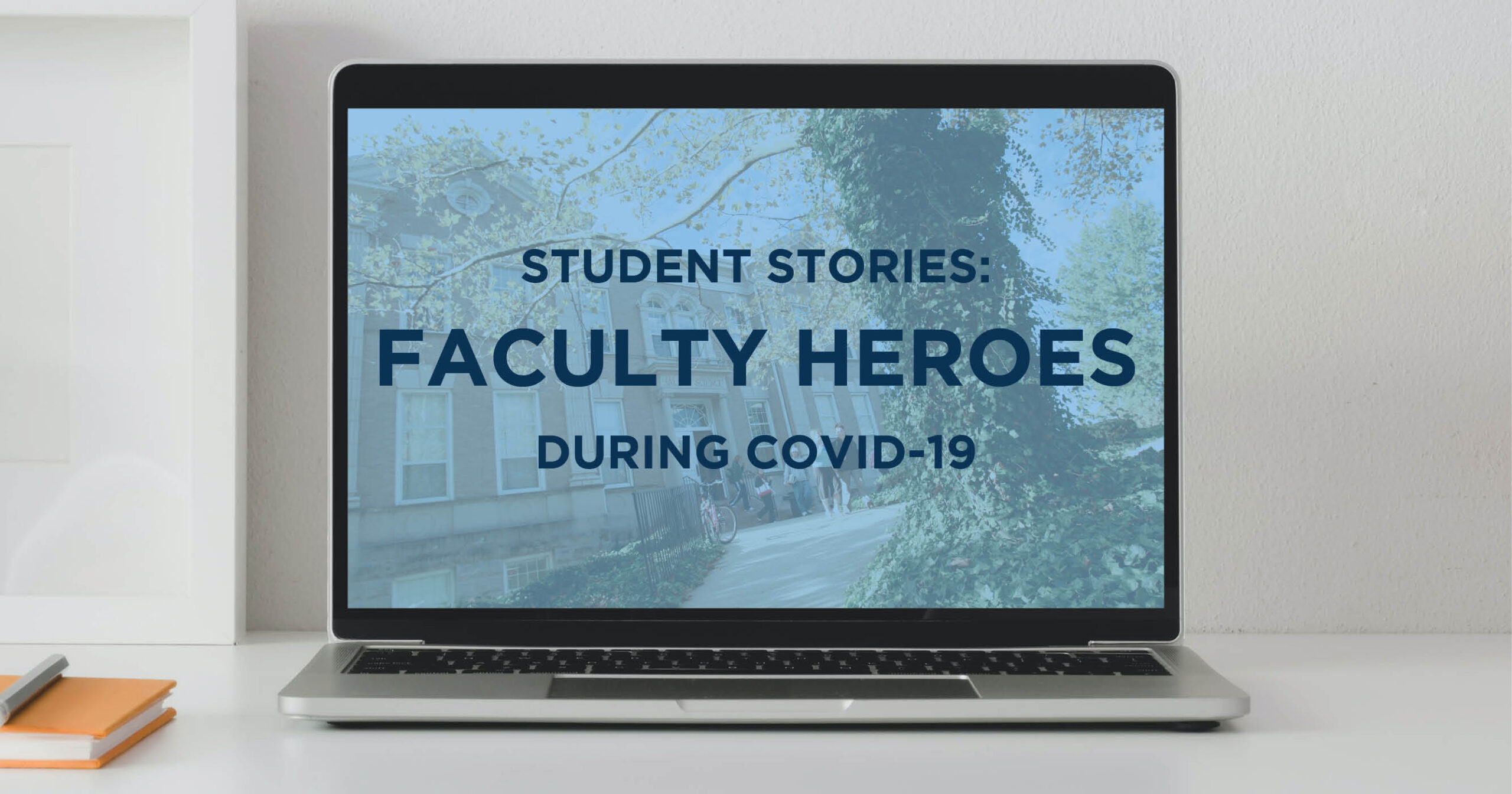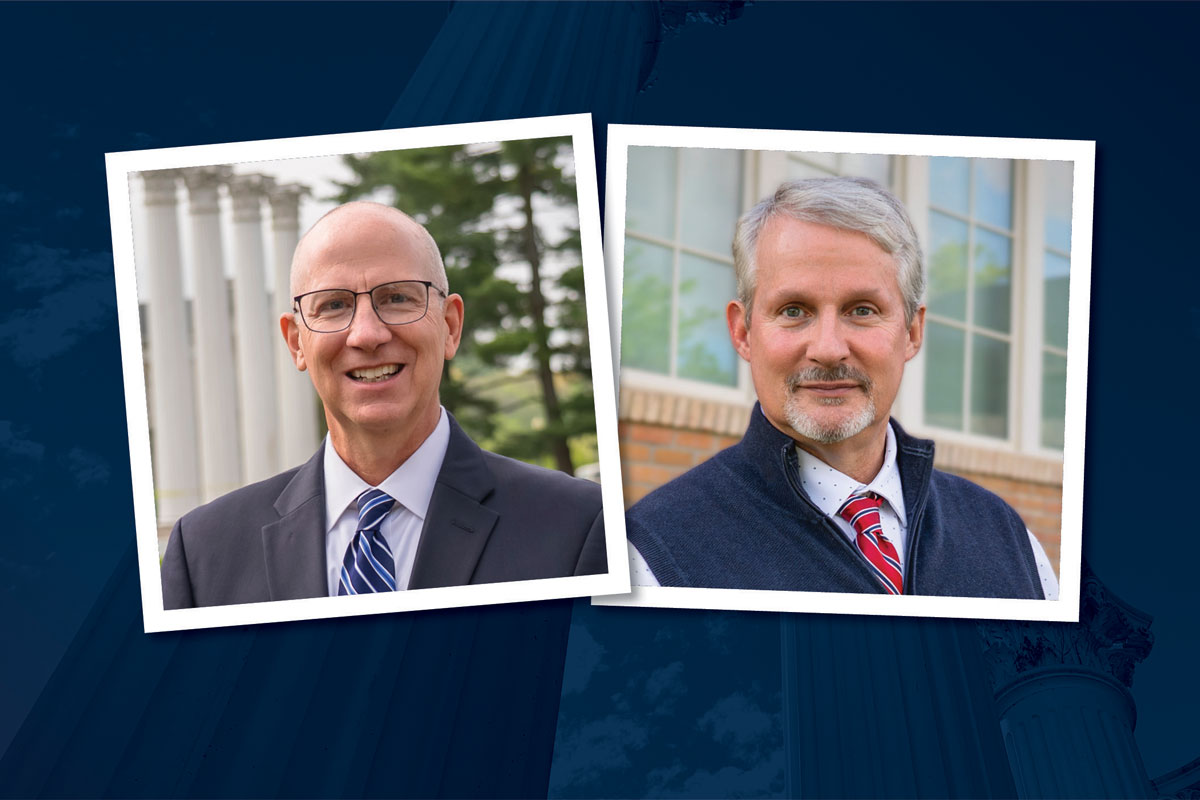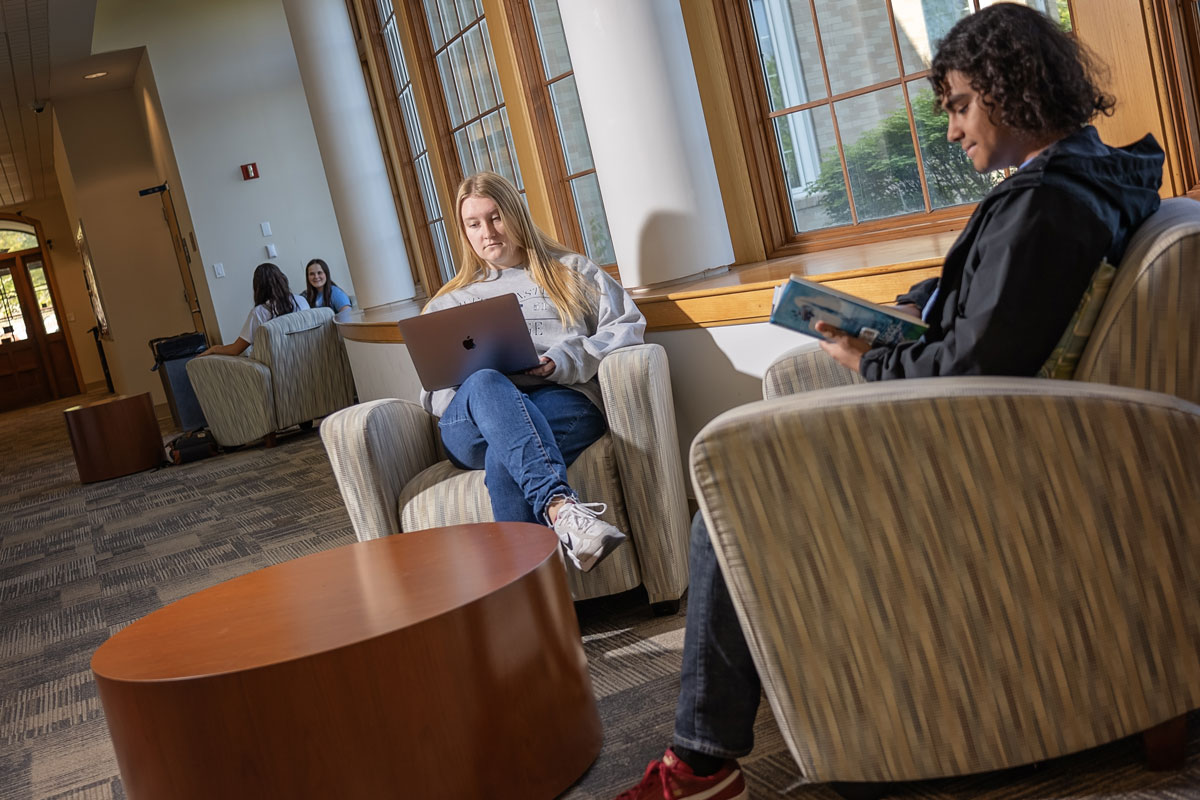By Student Storyteller Anthony Fairchild, Class of 2020
As the Coronavirus sweeps through the world and the country affecting and changing everything in its path, Westminster College and its community are certainly not left untouched. As the school began a mid-semester transition from in-class to an online atmosphere, it left many students and faculty unclear of what was to come. Dr. Jeremy Reed, an Assistant Professor of English at Westminster College, quickly became a shining example of what it means to be effective, transcendent, and professional during an uncertain time for everyone involved in the academic world.
The transition from in-class to an online setting began in the middle of March when it became overwhelmingly clear that the coronavirus was spreading through the country, and the pandemic inevitably would reach the Westminster community. Once the decision of transition was finalized and publicized to the community, Dr. Reed quickly began thinking and working towards an effective online atmosphere. “One thing I really appreciated about Dr. Reed was his clarity and quickness to react to the situation, he was also very considerate to our livelihoods and issues during it all” said Sarah Manly, a student of Dr. Reed’s. In the majority of Dr. Reed’s classes, he set up a two-part system involving both asynchronistic and synchronous aspects. The asynchronistic aspect involved daily/weekly tasks that students had to perform in order to receive homework points. This would include things like submitting a weekly writing or posting on a discussion board reacting to other student’s work. The synchronous side of the classes involved weekly meetings in class via Zoom, while also including workshops, one-on-one student conferences, and editorial meetings. “Knowing I had the reassurance that I could always meet with Dr. Reed one-on-one, whether it was right after a Zoom class or just a private meeting, really gave me the confidence to finish strong this semester” said Maria Hicks, a student in Creative Poetry for Dr. Reed.
While a quick transition from a face-to-face experience to an online experience is not ideal in any academic setting, however, it has wielded professional growth for Dr. Reed. He goes on to say “One of the positive aspects to learning online has been getting to foster a wider community with certain activities than I may have been able to do in a traditional face-to-face setting. For instance, I hosted Karen Craigo’s reading virtually instead of in-person this spring and as a result she was able to read to a group of listeners from across the country instead of just our students. As well, I think online learning has helped my teaching grow to include more successful small group workshop exercises in ways that I’ll carry back to my face-to-face classes in the fall.”
Dr. Reed also faced many challenges while dealing with the transition including: internet access for students, student health and well-being, and different student stressors at home dealing with the pandemic. Dr. Reed combated this by researching ways for students to opt-in to free interest services, made his deadlines more flexible, and met with students whenever possible. “Students met with me while they were on break at work, finished their assignments after their younger family members went to bed, and in some cases turned in their writing assignments from their cars in fast food parking lots to pick up Wi-Fi. I have a tremendous amount of respect for the work my students put in this semester” said Dr. Reed during an e-mail interview.
Dr. Reed truly executed a smooth and effective transition from a face-to-face experience to an online experience at the drop of a hat. As the semester ends and the world attempts to return to a sense of normalcy we should all strive to resemble the same amount of understanding, transcendence, and professionalism that Dr. Reed has during this transition.
Sarah Rummel Backer is the Director of Media Relations and Senior Writer at Westminster College in Fulton, Missouri. A proud Westminster graduate, Sarah has more than 20 years of experience in marketing and strategic communications in the areas of higher education, medicine, agriculture, and the private business sector.






